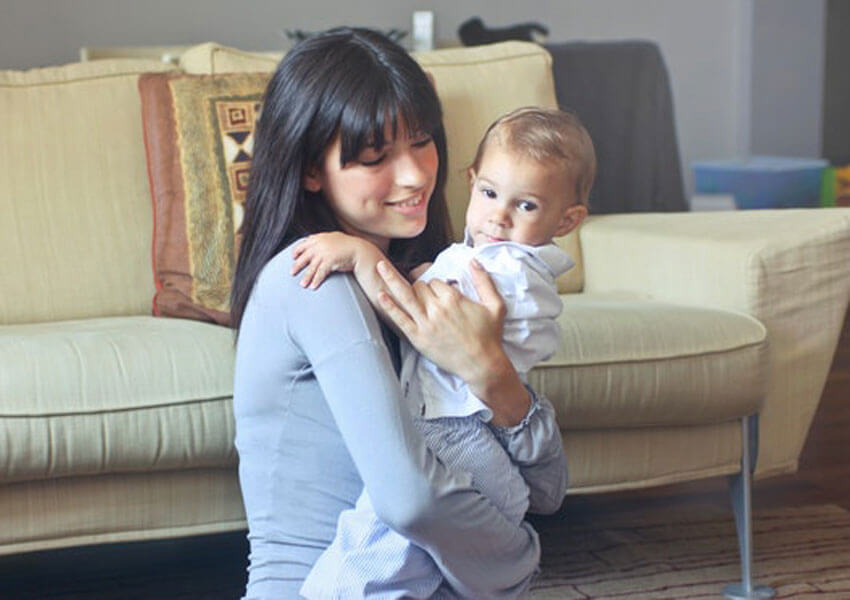A derivative child under the Violence Against Women Act (VAWA) is a child who can obtain lawful permanent residency through their parent’s VAWA self-petition. VAWA was created to protect survivors of abuse, giving them a way to apply for a green card without fear of their abuser controlling their immigration status.
If your VAWA petition is approved, you may also be able to obtain a green card for your child as a derivative beneficiary without needing to file a separate petition. This means children do not have to live in fear of being separated from their parent or facing deportation because of circumstances beyond their control. It allows them to stay with their parent and build a future in safety.
However, for a child to receive these protections, they must be properly included as a derivative beneficiary in the parent’s application. If they are not listed, they could miss out on the opportunity for legal status.
Who Qualifies as a Derivative Child Under Vawa?
A child can be included as a derivative beneficiary in a parent’s VAWA self-petition if they meet the following eligibility requirements:
- Age and Marital Status – The child must be under 21 years old and unmarried at the time the petition is filed. If the child turns 21 while the case is still pending, they may still qualify under the Child Status Protection Act (CSPA) in some circumstances.
- Relationship to the Self-Petitioning Parent – The child must be the biological child, stepchild, or legally adopted child of the parent applying for VAWA. A stepchild qualifies if the step-parent relationship was created before the child turned 18.
- Parent’s VAWA Eligibility – To be eligible for VAWA, the parent must be a survivor of abuse by a U.S. citizen or lawful permanent resident spouse. However, parents facing abuse by a son or daughter who is a U.S. citizen cannot use VAWA to seek derivative benefits for their children.
- The Child Does Not Need to Be Abused – Unlike direct self-petitioners, children do not need to have personally suffered abuse. As long as the parent qualifies for VAWA due to abuse, their children can be included in the petition and benefit from the approval.

To successfully include a child in your VAWA petition, you must provide documentation of your parent-child relationship. This can include birth certificates, adoption papers, or proof of a stepparent relationship.
If you encounter challenges, an experienced VAWA lawyer can help gather the necessary evidence to support your case.
What Are the Benefits for Derivative Child?
A derivative child under the Violence Against Women Act (VAWA) can enjoy important benefits that help ensure their safety, stability, and future in the U.S. Here is how the VAWA process supports children of petitioners:
Protection from Deportation
Once a child is included in a VAWA petition, they are generally protected from removal while the petition is pending. This can offer significant relief to families who fear separation due to their immigration status.
Eligibility for a Green Card
If the parent’s VAWA self-petition is approved, the derivative child is also eligible to apply for a green card (lawful permanent residency). This allows them to remain in the U.S. legally, pursue education and employment opportunities, and eventually seek U.S. citizenship.
Work Authorization
For older children, obtaining lawful status through VAWA can open the door to work authorization. This gives them the ability to support themselves, gain independence, and contribute to their family’s well-being, creating opportunities that might not otherwise be available.
Access to Education and Public Benefits
Children with lawful permanent residency may qualify for in-state tuition at colleges and universities, as well as access to federal and state financial aid. Depending on local laws, they may also qualify for certain public benefits that support their health and well-being.
A Path to U.S. Citizenship
After five years as a lawful permanent resident, a derivative child may apply for U.S. citizenship, securing their future in the U.S. permanently.
Contact Odunlami Law for Confidential Consulation
The Violence Against Women Act (VAWA) offers life-changing benefits, but navigating the legal process can be challenging. Even minor mistakes in the application can lead to delays, denials, or complications that may put a child’s future at risk. Given these complexities, having experienced legal guidance is highly recommended.
At Odunlami Law, we understand the immense hurdles survivors of abuse face, especially when it comes to securing the safety and stability of their children. If you need help filing a VAWA application and including your child, or if you have questions about whether your child may need to file independently, contact us to learn more about how we can help.
